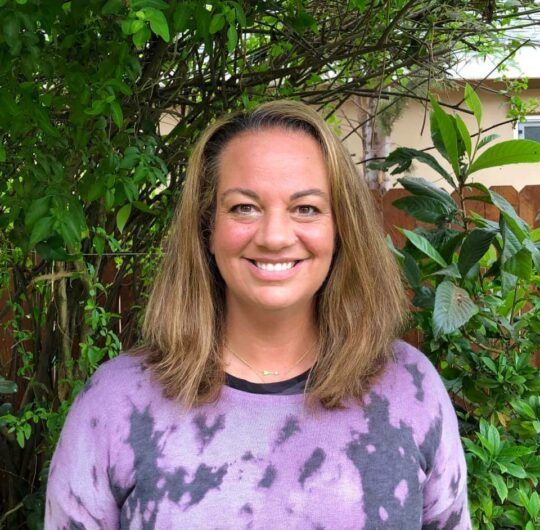Learn the skills we all need to meet life’s challenges with more wisdom and kindness.
Our new and abridged course, The Short Course in Mindful Self-Compassion (SC-MSC), will teach you how to hold yourself with tenderness and compassion when you need it most — when you fail, feel inadequate and are suffering. Learn MSC’s key informal practices, as well as brief practices in mindfulness right from home.
Too often we meet pain and challenge with harshness and criticism. SC-MSC will teach you how to be present and courageous in the face of physical and emotional pain rather than fighting it or turning away from it – perfect for this season of uncertainty.
SC-MSC was developed by MSC’s pioneering researchers and clinicians, Kristin Neff and Christopher Germer for those who were short on time and could not engage in the longer 2 ½ hour weekly class.
Research
Research has shown that self-compassion greatly enhances emotional well-being. It boosts happiness, reduces anxiety and depression, and can even help you stick to your diet and exercise routine. All that’s required is a shift in the direction of your attention–recognizing that as a human being, you, too, are a worthy recipient of compassion.
From the New York Times
The research suggests that giving ourselves a break and accepting our imperfections may be the first step toward better health. People who score high on tests of self-compassion have less depression and anxiety, and tend to be happier and more optimistic. Preliminary data suggest that self-compassion can even influence how much we eat and may help some people lose weight.
This idea does seem at odds with the advice dispensed by many doctors and self-help books, which suggest that willpower and self-discipline are the keys to better health. But Kristin Neff, a pioneer in the field, says self-compassion is not to be confused with self-indulgence or lower standards.
“I found in my research that the biggest reason people aren’t more self-compassionate is that they are afraid they’ll become self-indulgent,” said Dr. Neff, an associate professor of human development at the University of Texas at Austin. “They believe self-criticism is what keeps them in line. Most people have gotten it wrong because our culture says being hard on yourself is the way to be.”
Imagine your reaction to a child struggling in school or eating too much junk food. Many parents would offer support including tutoring or making an effort to find healthful foods the child will enjoy. But when adults find themselves in a similar situation – struggling at work, or overeating and gaining weight – many fall into a cycle of self-criticism and negativity. That leaves them feeling even less motivated to change.
“Self-compassion is really conducive to motivation,” Dr. Neff said. “The reason you don’t let your children eat five big tubs of ice cream is because you care about them. With self-compassion, if you care about yourself, you do what’s healthy for you rather than what’s harmful to you.”
Schedule:
- January 11th
- January 18th
- January 25th
- February 1st
- February 8th
- February 15th
Testimonials from Angelike and Heidi’s past MSC Students:
They were each so understanding, patient, and loving. Their passion for the subject radiated from them and they made each participant feel seen, heard, and loved. They always added some humor and I appreciated them sharing their personal experiences with the practice. They created such a safe space for us all. They were also happy to stay later to answer questions. There is nothing that can be improved. These teachers are incredible and work very well together.Both Heidi and Angelike embodied self-compassion, and they provided a supportive class during this difficult time. I felt this was a safe place I could go to every week. Having the 8 weeks together, and really getting to know the teachers and fellow participants, especially during the challenging time of coronavirus and racial unrest.
Heidi and Angelike were simply wonderful. A great team as a duo; Heidi was always compassionate and met the moment with care and generosity; Angelike did the same and THOSE EMAILS that she put together were unbelievable. The dedication and wisdom they extended to us was quite moving and powerful. I would recommend this course to others because we don’t spend enough time taking care of ourselves and this program gives us the tools to do so – BET ON YOURSELF and take this course.
Continuing Education Hours:
Psychologists: Continuing Education Credit for this program is provided by UC San Diego Center for Mindfulness. The UC San Diego Center for Mindfulness is approved by the American Psychological Association to sponsor continuing education for psychologists. The UC San Diego Center for Mindfulness maintains responsibility for this program and its content. This course offers 6.0 CE credit.
California licensed MFTs, LPCCs, LEPs, LCSWs: Continuing Education Credit for this program is provided by UC San Diego Center for Mindfulness. The UC San Diego Center for Mindfulness is approved by the American Psychological Association to sponsor continuing education for psychologists. 6.0 CE credit may be applied to your license renewal through the California Board of Behavioral Sciences. For those licensed outside California, please check with your local licensing board to determine if CE credit is accepted.
Nurses: UC San Diego Center for Mindfulness is approved by the California Board ofRegistered Nursing, Provider Number CEP16351, for 7.0 CE credit.



